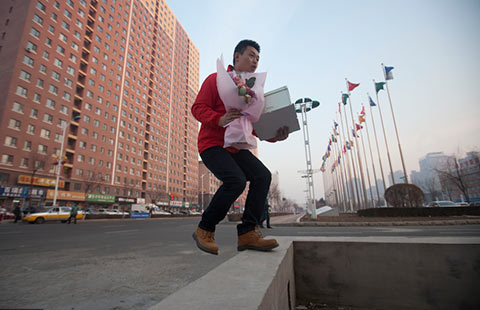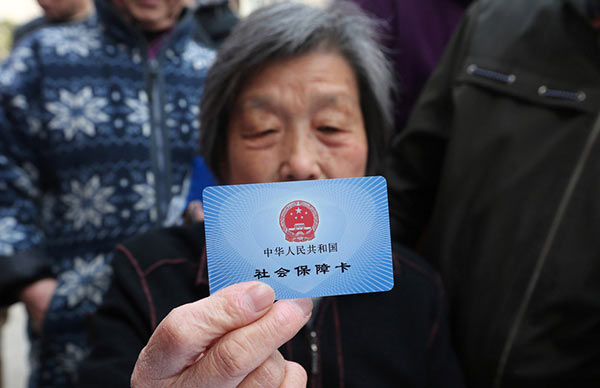Branching out from logging to snow
"At the beginning, my lodge was quite small and I could only utilize it as a restaurant. In the second year, my wife and I bought a new house. This one was much larger so we could offer basic accommodation services, three meals and a bed for one night for only 30 yuan ($4.82)," said Liu.
"We earned 5,000 yuan in 2000. This was big money for our family at that time," said Liu's wife who only gave her name as Jia.

In the early years, Liu and his wife would take photos with every family that booked his hostel and pasted them on their dinning room wall. However, as the number of visitors increased, there is now no more space for more pictures so they are instead collected in a box.
"Every time I meet congenial guests, I will bring out my photos and share the stories behind them," said Jia.
Liu said the oldest guest to stay at his hostel is a Mr Cai, an 87-year-old man from Taiwan province. To celebrate his Spring Festival vacation on the Chinese mainland, Cai went to China's Snow Town with his son and chose to stay at Liu's hostel.
"I asked my two granddaughters to make a ceremonial call to Cai on Chinese New Year and he was very happy and gave them NT$300 ($10) as gift money," said Liu.
Since 2004, in order to protect the original ecological landscape, authorities have stopped all timber harvesting in Heilongjiang province and a scenic management committee was established to promote the development of infrastructure in China's Snow Town.
Tourism industry planning experts from Switzerland and the Architectural Design and Research Institute of Harbin Institute of Technology were invited in 2004 and 2008 respectively to conduct overall and specific development plans for the town.
Initially, the reception capacity of the town was limited due to its low-level accommodation and less developed external transport systems.
Local traffic infrastructure has since rapidly developed and roads that link to neighboring cities have been constructed. The living standards of local residents have also increased, reaching a new high for the decade.
Visitors from overseas
Although Liu has not conducted any advertising or sales promotions for his hostel, the number of customers increases each year fuelled by returnees and word of mouth about the excellent quality and reasonable price of the hostel.
"I know little about the Internet so I don't have any websites to provide booking services for customers but many visitors have put their travel itineraries online when they get back and my hostel and my family are mentioned in their work and pictures," said Liu.
Sales are obviously important. Owing to the enthusiasm of Liu's family, many of their loyal customers have visited several times and brought their friends with them, even friends from overseas.
"Many foreign visitors have spent their holidays in my hostel in recent years. I still remember one of them was an American who came to the town after the Spring Festival in 2011 with his Chinese girlfriend. He spoke limited Chinese and operates a firm in Shenzhen, in Guangdong province. He is addicted to the culture and folk customs of the town so we got along well with each other and I gave him my Tang suit as a gift, " said Liu.
To show appreciation of the generosity of Liu's family, many visitors are happy to present gifts to the old couple.
"A German couple presented a shaver and a necklace to us before they left in 2004," said Liu.
"He (Liu Mingwen) is one of the first villagers and pioneers to operate a family hostel in the town. The gross annual income of his hostel can reach 200,000 yuan, far higher than his less than 2,000 yuan annual retirement pension," said Ning Xiaofeng, deputy director of the Tourism Bureau of China's Snow Town.
According to Ning, as of the end of December 2012, nearly 120,000 travelers from other provinces in China and overseas had visited the town and the income from the town gate tickets alone reached 8.65 million yuan, with per capita consumption reaching 550 yuan.
liuzheng@chinadaily.com.cn

















